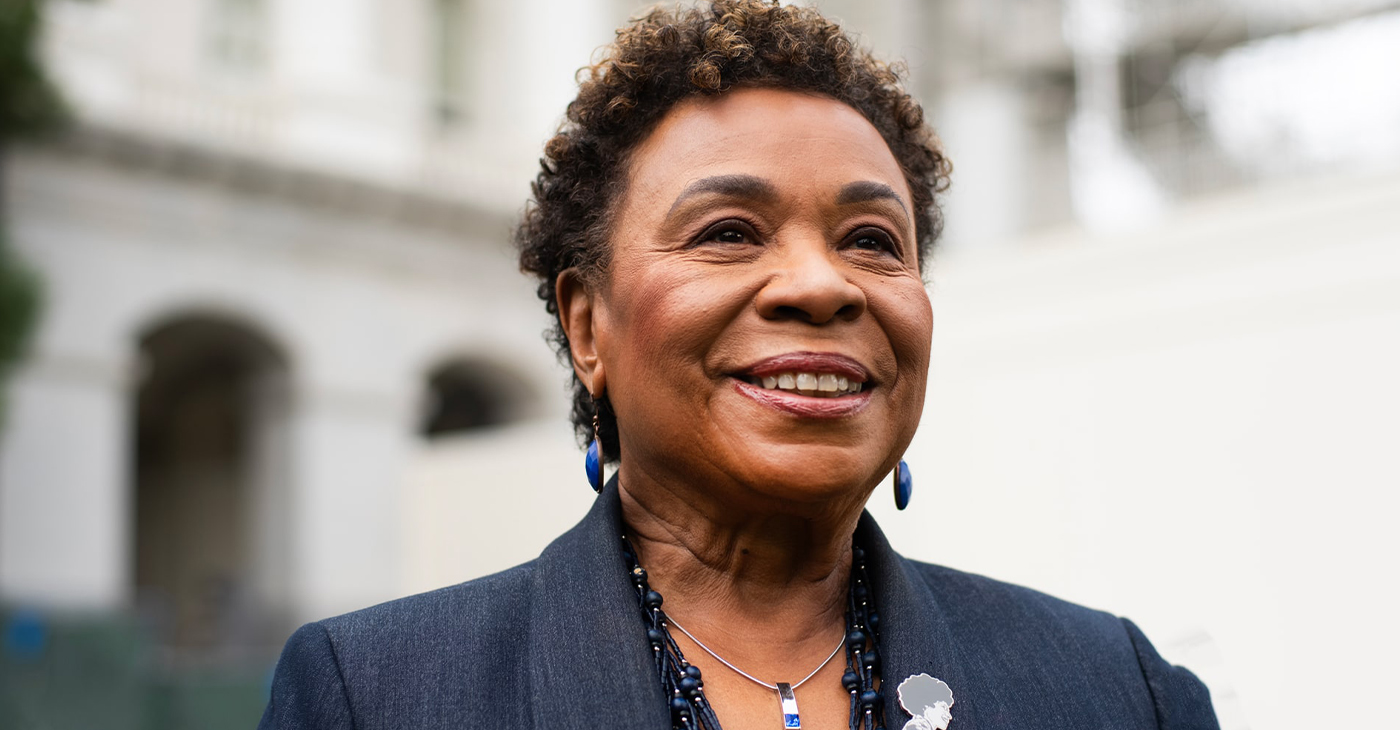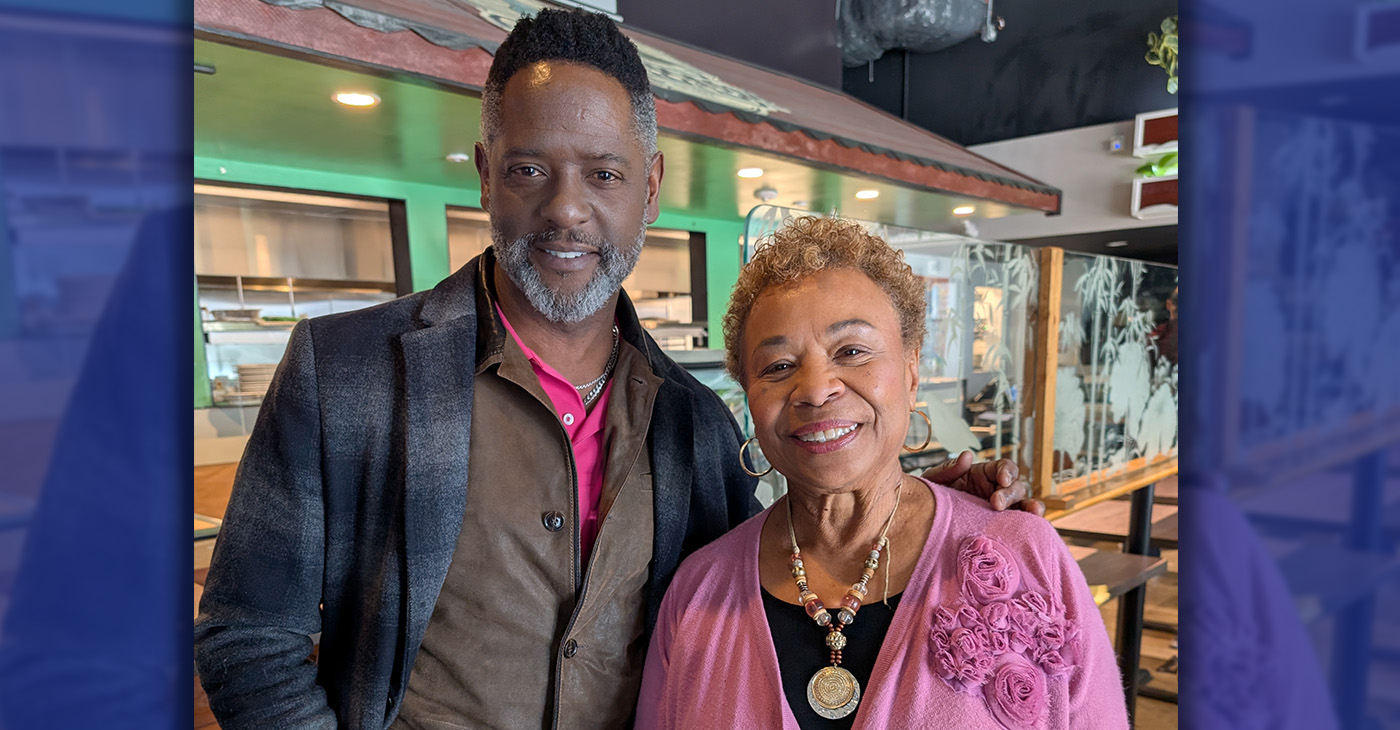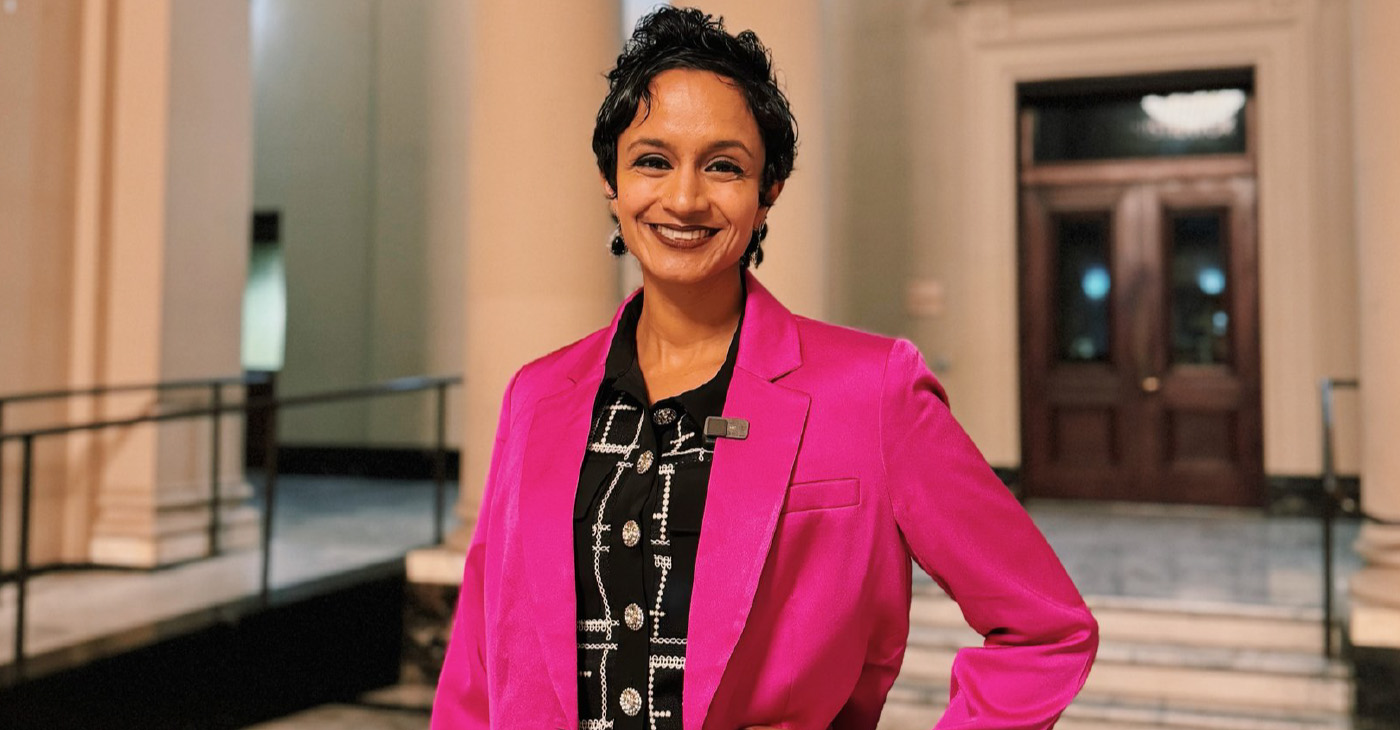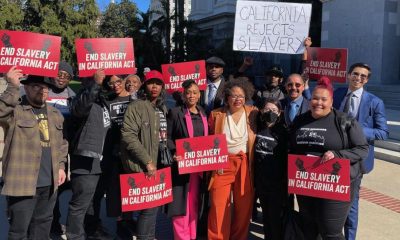Op-Ed
Slavery Thrives in Some Countries
By Lekan Oguntoyinbo
NNPA Columnist
A couple of weeks ago, law enforcement officials in Mauritania arrested nine people for doing something the government considers radical: protesting slavery.
In 1980, Mauritania became the last nation in the world to legally abolish slavery, an institution that that had existed in the poor, landlocked Islamic West African country of fewer than 4 million people in the middle of the Sahara for more than 700 years.
The operative word here is “legally.” More than 30 years later, the enslavement of Blacks by the ruling Arab Berber class stubbornly persists. It is estimated that about 4 percent of Mauritania’s population, or about 140,000 people, are enslaved.
Over the years, the government has passed a couple of additional anti-slavery acts, but they are rarely enforced. For the most part, the government has taken a see-no-evil approach. Senior government officials often deny that the practice still exists – despite glaring evidence to the contrary.
But in recent months, Amnesty International and other human rights groups say the Mauritanian government appears to have maintained a campaign against the nation’s nascent anti-slavery movement.
The activists arrested recently included Biram Ould Dah Ould Abeid, president of Mauritania’s Initiative for the Resurgence of the Abolitionist Movement (IRA) and runner-up in June’s presidential election. Abeid and the other activists had applied for permits to hold anti-slavery rallies and had been denied. Since their arrest, they have been beaten repeatedly, according to press reports and human rights groups. Shortly after their arrests, police officers also closed the IRA’s headquarters in the Mauritian capital Nouakchott and arrested the organization’s spokesperson.
In October, four IRA members were arrested in the biggest mosque in Nouakchott while responding to criticisms made against their organization. They were charged with disturbing prayers and incitement to revolt. They remain in detention and have not been tried.
“Anti-slavery activists are subject to never ending harassment and intimidation in Mauritania. Their actions are either prohibited or severely repressed and they are frequently arrested. This general clamp down must stop as it is a clear violation of the rights to freedom of peaceful assembly and association,” Gaëtan Mootoo, Amnesty International West Africa Researcher, said in a statement.
The government’s campaign against the abolitionists coincides with the recent release of a report by the Global Slavery Index, which is produced by the Walk Free Foundation, an Australian-based organization dedicated to ending modern day slavery. The index says approximately 36 million people are enslaved in scores of countries around the world. These modern-slaves are forced against their will to do things such as picking cotton or growing cannabis and working as prostitutes. The report, which covers 167 countries, estimates that modern day slavery results in the production of more than 100 goods from nearly 60 countries. The International Labor Organization says profits from this forced labor hover at around $150 billion each year.
Several countries were singled out for having particularly bad records, including Qatar, a wealthy Middle Eastern kingdom that has a reputation for luring African and Asian immigrants with the promise of good jobs and then exploiting them; India, where approximately 15 million people are said to be enslaved; and Uzbekistan, a former Soviet republic in Central Asia where the government forces more than 1 million people to harvest cotton each year. Other countries cited as having a high prevalence of modern slavery include Haiti, Pakistan, the Central African Republic, Syria, Sudan and the Democratic Republic of the Congo.
But Mauritania, where the practice is so deeply entrenched and kept alive by tradition, was cited as the most notorious offender. The report notes that Black African women are particularly vulnerable to the practice. It is not uncommon for several generations of women from one family to serve one Arab Berber family over decades or centuries. Arab Berbers began settling in the country in the 11th century, overran it and have largely ruled it since then. They control the government, the military and other essential aspects of life in the country.
Most of the enslaved are beaten and treated as if they were chattel. Many of the women are raped and impregnated by their slave masters.
The practice persists in this 21st century high tech world in part because of teachings of religious leaders in Mauritania that the Koran approves of slavery (sounds familiar?) and also because many of the slaves and their descendants have been conditioned to believe that there is no life outside of slavery for people who look like them.
In recent years, slavery in Mauritania has received some attention from several leading news outlets, including CNN, the New Yorker magazine, the Guardian and the New York Times, as well as the United Nations and anti-slavery groups. But the attention has not resulted in the kind of worldwide activist fervor that we saw in the fight against apartheid in South Africa, White minority rule in Rhodesia or in the battle against the enslavement and slaughter of Black Christians and animists in Sudan.
It will take that same kind of fervor to end this inhumane practice in the one place in the world where de facto slavery of Blacks still thrives.
Lekan Oguntoyinbo, a columnist for the L.A. Wave, is a national award-winning journalist. Follow him on Twitter @oguntoyinbo. Email him at oguntoyinbo@gmail.com.
###
Activism
Oakland Post Endorses Barbara Lee
Barbara Lee will be able to unify the city around Oakland’s critical budget and financial issues, since she will walk into the mayor’s office with the support of a super majority of seven city council members — enabling her to achieve much-needed consensus on moving Oakland into a successful future.

As we end the celebration of Women’s History Month in Oakland, we endorse Barbara Lee, a woman of demonstrated historical significance. In our opinion, she has the best chance of uniting the city and achieving our needs for affordable housing, public safety, and fiscal accountability.
As a former small business owner, Barbara Lee understands how to apply tools needed to revitalize Oakland’s downtown, uptown, and neighborhood businesses.
Barbara Lee will be able to unify the city around Oakland’s critical budget and financial issues, since she will walk into the mayor’s office with the support of a super majority of seven city council members — enabling her to achieve much-needed consensus on moving Oakland into a successful future.
It is notable that many of those who fought politically on both sides of the recent recall election battles have now laid down their weapons and become brothers and sisters in support of Barbara Lee. The Oakland Post is pleased to join them.
Activism
Actor, Philanthropist Blair Underwood Visits Bay Area, Kicks Off Literacy Program in ‘New Oakland’ Initiative
These community activations were coordinated with the San Francisco-based non-profit program “Room to Read.” Ray said he is also donating his time to read and take pictures with students to encourage their engagement and to inspire them to read more. The inspirational book “Clifford Ray Saves the Day” highlights Clifford Ray’s true story of saving a dolphin.

By Paul Cobb
New Oakland Series
Opinion Part 3
The Post mentioned three weeks ago that a number of our local luminaries were coming together to support the “New Oakland” movement. As this current national administration continues to eliminate our “legacy” institutional policies and programs left and right, most communities find themselves beyond “frozen” in fear.
Well, esteemed actor, long-time Bay Area supporter, and philanthropist Blair Underwood returned to Oakland this week to speak with city leaders, community trust agents, students, the Oakland Post, and local celebrities alike to continue his “New Oakland” initiative.
This week, he kicked off his “Guess Who’s Coming to Read” literacy program in some of Oakland’s middle schools. Clifford Ray, who played the center position of the 1975 World Champion Golden State Warriors, donated close to 1,000 books. Ray’s fellow teammate Charles “The Hopper” Dudley also gave Converse sneakers to students.
These community activations were coordinated with the San Francisco-based non-profit program “Room to Read.” Ray said he is also donating his time to read and take pictures with students to encourage their engagement and to inspire them to read more. The inspirational book “Clifford Ray Saves the Day” highlights Clifford Ray’s true story of saving a dolphin.
Underwood also spent quality time with the Oakland Ballers ownership group and visited the amazing Raimondi Park West Oakland community revitalization site. In the 1996 TV film Soul of the Game, Underwood played the role of the legendary first Black Major League Baseball player Jackie Robinson and commended the Ballers owners.
“This group of sports enthusiasts/ philanthropists needs to be applauded for their human capital investment and their financial capital investment,” Underwood said. “Truly putting their money and passion to work,” Underwood said.
Underwood was also inspired by mayoral candidate Barbara Lee’s open-minded invitation to bring public-private partnership opportunities to Oakland.
Underwood said he wants to “reinforce the importance of ‘collaborative activism’ among those most marginalized by non-empathic leadership. We must ‘act out’ our discomfort with passionate intentions to create healthy change.”
Activism
Councilmembers Ramachandran, Kaplan, Unger Identify Funds to Save Oakland Fire Stations
Our budget crisis – one of the worst in Oakland’s history – is compounded by the fact that people do not feel safe coming to Oakland due to our public safety crisis. By investing in our fundamental public safety resources today, we can send a signal to the world that Oakland is open for business. We have such a rich and vibrant culture, arts, and food scene that is worth celebrating – but we can only showcase this if we are able to keep our neighborhoods safe. Having fully functioning fire stations are absolutely essential to these efforts.

By Janani Ramachandran
There is no greater concern to the people of Oakland today than public safety. Fire stations are the bread and butter of essential city services – and every day that we have stations shuttered, we imperil the lives of our community members. In response to widespread outcry over the current and planned closure of stations, myself, along with Councilmembers Kaplan and Unger, have painstakingly worked to identify millions of dollars of new funding to save our stations. The legislation we introduced on Thursday, February 13th, will amend our budget to prevent the closure of four fire stations that are currently on the chopping block due to our budget crisis and will re-open two closed stations that have already been closed – Station 25 and 28 – in the near future. The resolution that will provide the funding to keep our stations open will go before the full City Council for a vote at our meeting on Tuesday, March 4th at 3:30 PM – and we invite you to join us at City Hall to share your perspective on the topic.
Our budget crisis – one of the worst in Oakland’s history – is compounded by the fact that people do not feel safe coming to Oakland due to our public safety crisis. By investing in our fundamental public safety resources today, we can send a signal to the world that Oakland is open for business. We have such a rich and vibrant culture, arts, and food scene that is worth celebrating – but we can only showcase this if we are able to keep our neighborhoods safe. Having fully functioning fire stations are absolutely essential to these efforts.
With the devastating Los Angeles fire at the top of people’s minds, terrible memories of Oakland’s own wildfires are re-surfacing from the 1991 Oakland Hills Firestorm to the Keller fire just a few months ago – and how essential fire stations are to mitigating these catastrophes. But in Oakland, our fire stations don’t just fight wildfires – they also provide emergency medical services to our most vulnerable constituents, put out structural fires and encampment fires, and much more.
We recognize that there are a number of competing interests and important initiatives fighting for sparse City resources. But from my perspective, core safety services are the most pivotal functions that a City must spend its resources on – especially given the outcry we have heard around fire stations.
The fight to save our stations is not over. The resolution we introduced is a critical first step, and there are hurdles to overcome. If you support keeping our fire stations open, we invite you to be a part of the solution by making your voice heard at the March 4th City Council meeting at 3:30 pm.
-

 Activism4 weeks ago
Activism4 weeks agoOakland’s Most Vulnerable Neighborhoods Are Struggling to Eat and Stay Healthy
-

 Activism3 weeks ago
Activism3 weeks agoOakland Post Endorses Barbara Lee
-

 Activism4 weeks ago
Activism4 weeks agoOakland Post: Week of March 28 – April 1, 2025
-

 Activism3 weeks ago
Activism3 weeks agoOakland Post: Week of April 2 – 8, 2025
-

 #NNPA BlackPress3 weeks ago
#NNPA BlackPress3 weeks agoTrump Profits, Black America Pays the Price
-

 Activism2 weeks ago
Activism2 weeks agoOakland Post: Week of April 9 – 15, 2025
-

 #NNPA BlackPress3 weeks ago
#NNPA BlackPress3 weeks agoHarriet Tubman Scrubbed; DEI Dismantled
-

 #NNPA BlackPress3 weeks ago
#NNPA BlackPress3 weeks agoLawmakers Greenlight Reparations Study for Descendants of Enslaved Marylanders



















































